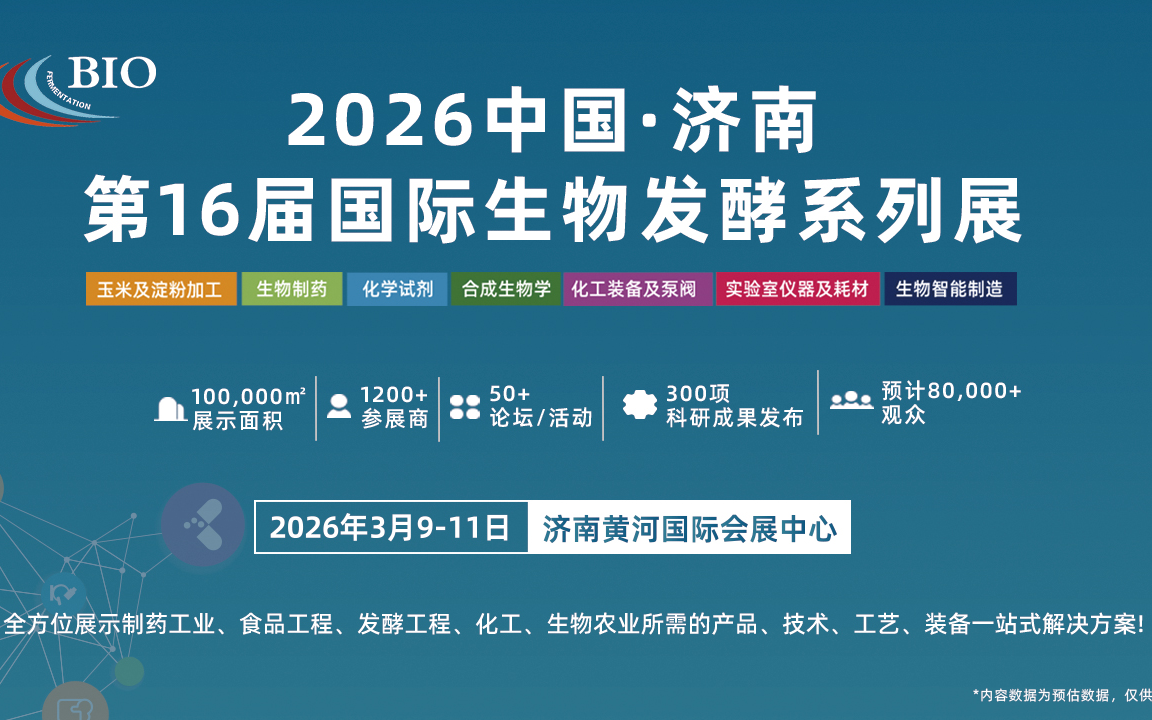高层管理者与外籍/外派人士个人所得税筹划——北京场
时间:2018-02-28 09:00 至 2018-02-28 17:00
地点:北京

- 参会报名
- 会议通知
- 会议日程
- 会议嘉宾
- 参会指南
-
手机下单


|
高层管理者与外籍/外派人士个人所得税筹划——北京场 已截止报名
|
| 发票类型: 增值税专用发票 增值税普通发票 |
| 领取方式:会前快递 |
| 发票内容:咨询费 服务费 咨询服务费 |
| 参会凭证:现场凭电话姓名参会 |
 会议通知
会议通知
会议内容 主办方介绍

高层管理者与外籍/外派人士个人所得税筹划——北京场宣传图
3月2日,北京场,北京亮马河饭店,会议语言:中文
China starts the Automatic Exchange of Financial Information (AEOI) in 2018. How it will affect expatriates working in China? Will your overseas incomes be taxable in China? Are you aware that you can be a China tax resident without a Chinese identity card?中国在2018年9月国家税务总局与其他国家(地区)税务主管当局第一次交换金融信息。这将如何影响在中国境内工作的外籍人士?境外收入会否因而要缴纳中国税?你知否虽没有中国身份证,也会是中国税收居民?
The seminar value
The latest trends in IIT enforcement on expatriates working in China
The basic principles of IIT for expatriates
Most concerned and difficult issues of IIT planning for senior management and expatriates in different status
10 vivid practical cases analysis to provide best solutions for IIT Planning
Open discussion mode and inspiring interaction
会议价值
在中国工作的外籍人士的IIT执法的最新趋势
派遣人员个税的基本概念阐述
高管及派遣借调人员在不同情况下的个税筹划重点及难点
10个生动案例,全面解析个税筹划方案
开放式讨论与现场热烈互动
Who should attend?
Senior Management; Expatriates and Second Staff; HRD and HRM; Tax Director and Manager
适会人员
公司高层管理人员; 派遣或借调的员工(本土与非本土); 人力资源总监及经理; 税务总监及经理
In this seminar, we will discuss the following issues:
1.AEOI (Common Reporting Standard (CRS)) - how will it affect expatriates working in China? What are the differences if you have family in home country? Which types of information will be transmitted to China State Administration of Taxation? Will information of jointly owned bank accounts be transmitted?
2. How will the Golden Tax 3 system affects expatriates' IIT reporting in China? What are the latest trends in IIT enforcement on expatriates working in China?
3. Under what circumstances an expatriate will be a China tax resident? What is the 5-year rule for China worldwide tax? What is "tax break"? If you have already stayed in China over 5-year period, what can you do?
4. If your company has not withheld IIT correctly for the employees, what are the remedies to reduce the penalty / late payment surcharges?
5. Which types of short-term assignment to China can be exempt from IIT?
6. Can a legal representative of a wholly foreign owned enterprise not getting paid in China?
7. Why the chief representative of a rep office has to pay IIT for even one-day of stay in China?
8. What are the IIT implications on stock option plan on expatriates? How to allocate onshore and offshore income? Why HR should reconsider the foreign exchange registration of stock option for expatriates? What are the China tax issues on stock option? Will an expatriate be taxable in China after leaving China?
9. Can split salary payments inside and outside China reduce IIT?
10. Will an expatriate be subject to China IIT for director's fee received?
11. What are the pitfalls of ideas such as "multiple payments of salaries", "non-cash benefits", "service fees", annual bonus etc.?
12. What should be noted in getting tax exempt allowances, e.g. meal allowance, housing allowance etc.?
13. Can expatriates get paid in foreign currency? Can an expatriate remit funds out from China after selling off his/her property?
14. What are the possible IIT planning opportunities for expatriates under the current tax environment? How to manage the risk of companies?
在这次研讨会上,我们将讨论以下问题:
1. AEOI (金融账户涉税信息自动交换)如何影响在中国境内工作的外籍人士?在原居地有家庭会否影响税务处理?哪些境外金融机构账户数据会交换到国家税务总局?联名银行账户的数据会否被交换?
2. 金税三期如何影响外籍人士的个税申报?对外籍人士的个税执法和稽查近期趋势
3. 外籍人士在哪些情况下会成为中国税收居民? 何谓「五年」? 何谓「tax break」? 如果你已在中国停留超过五年,可以怎办?
4. 如果公司少扣缴个人所得税,有何补救措施以减少罚款、滞纳金?
5. 哪些类型的中国短期工作能免征个人所得税?
6. 外资企业的法定代表人能不拿工资吗?
7. 为何代表处的首席代表即使在中国一天也要交个人所得税?
8. 外籍人士取得股票期权如何划分境内境外收入?为何HR在替外籍人士办股票期权的外汇登记时要三思? 外籍人员离境后才行权,要交个人所得税吗?
9. 境内境外分别发工资,只申报境内收入以减税,可行吗?
10. 境外公司支付的董事费,要在中国交个人所得税吗?
11. 以服务费、多处支付工资、非现金实物福利、奖金等,能减税吗?
12. 安排外籍个人免税补贴时,有哪些重点要注意?
13. 外籍个人能发外币工资吗?出售房产取得人民币能否合法汇出境外?
14. 有哪些可行的个税筹划方案?有哪些税收风险需要考虑?
We will explain these points via the cases below:
我们将通过下面的案例解释这些问题:
Case 1 – Different people, different concernsXYZ Group has the following types of expatriates working in China:
Type 1: Frequent travelers – number of working days in China is less than 183 in any 12-month period (183-day threshold)
Type 2: Frequent travelers – number of working days in China is over 183-day threshold
Type 3: Full-time work in Shanghai and travel to Hong Kong home every weekend
Type 4: Full-time stationer in China with family in China
1. What are the tax concerns of these four types of people?
2. Can split contract work to reduce tax?
3. What are the common tax planning ideas for different types of people?
4. How to arrange for tax exempt allowances? An expatriate would like to claim meal allowance of RMB20,000 per month. Is this reasonable?
案例1 – 针对不同人群的区别考虑XYZ集团在中国工作的外籍人士有以下几种类型:
类型1:经常出差者 - 在中国工作的天数在任何连续的12个月内都小于183天(183天门槛)
类型2:经常出差者 - 在中国工作的天数超过183天
类型3: 在深圳全职工作,但当天往返香港
类型4: 常驻中国的全日制工作者
1. 针对这四种类型的人有哪些税务考虑?
2. 境内境外两份合同能减少税负吗?
3. 针对不同类型个人,有什么共同的税收筹划思路?
4. 如何安排免税补贴?一外籍个人欲取得免税伙食补贴每月2万元,这合理吗?
Case 2 – Tax resident and PRC worldwide taxMr. Smith, a Canadian citizen, has been working in XYZ (China) Co Ltd as the CFO since 2010. He has bought a service apartment in China and got married with a Chinese national. He worried that he would become a tax resident of China and hence, subject to worldwide tax in China.
1. Under what circumstances will a foreigner become a China tax resident?
2. Will marriage and own an apartment make situation worse?
3. What is meant by worldwide tax in China?
4. How to avoid being a China tax resident?
5. What should Mr. Smith and his employer have done in the past? What are the remedies now?
案例2–纳税居民和中国全球税史密斯先生是加拿大公民,自2010年以来一直担任XYZ(中国)有限公司的首席财务官。他在中国买了服务式公寓,并与一名中国公民结婚。他担心,他会成为中国的税收居民而境内境外所得缴个人所得税。
在什么情况下,会使一个外国人成为中国纳税居民呢?
婚姻和自己的公寓会使情况变得更糟吗?
在中国的境内境外所得征税是什么意思?
能避免成为中国纳税居民吗?
史密斯先生和他的雇主先前应该做些什么?现在有什么补救措施吗?
Case 3 - Expatriates staying in China for less than 183 days but need to pay China IITThe overseas parent company charged its Beijing subsidiary technical service fees. Each of the project team member stayed in China for less than 183 days but they were required to pay China IIT and totaled RMB17 million and late payment surcharge of RMB5 million.
In another similar case, the IIT totaled RMB30 million while the enterprise income tax on the permanent establishment was RMB5 million
Why they were taxable in China? What are the technical grounds?
What are the tax and employment issues which management should consider when sending staff to work in China on project basis? How to reduce the IIT risks?
案例3 - 外籍个人在中国少于183天但要缴纳中国个税境外母公司向北京子公司收取技术服务费,外籍技术人员即使在中国境内逗留少于183天也需要缴纳中国税,最终需缴纳个人所得税1700多万以及滞纳金500多万。
在类似的另一个案,外国公司在中国构成常设机构,有关员工缴纳个人所得税3000多万及滞纳金500多万。
1. 为何这些外籍人士在中国逗留时间少于183天也需要征税?按什么法规?
2. 有哪些税务和聘用问题要关注?
3. 如何减轻个税风险?
Case 4 - Fraudulent invoices and penaltyA multinational company’s China subsidiary appointed three of the Big 4 to handle its China IIT matters. During a self-review, the China Co paid back IIT of RMB5 million for expatriates’ home leave allowances of family members and hotel charges, and housing allowances etc. for overseas returns working in China. During the tax audit, the China Co paid back IIT of another RMB4.5 million and a penalty of RMB4.5 million because of fraudulent invoices on housing allowances.
1. Who are entitled to tax exemption on various allowances? What are the tax exempt allowances for expatriates?
2. What are the measures management can consider to reduce the risks? What are the penalty on tax errors?
个案4-虚假发票和处罚
1. 一家跨国公司北京子公司委托四大的其中三家负责其外籍人员个税申报。在自查中,企业错误给予探亲费免税补贴以及海外归来工作人士给予外籍补贴,补贴约500万。在税务稽查中,被发现免税补贴中有虚假租赁发票,最终要补税450万并罚款一倍450万。
2. 谁可享有免税补贴?有哪些免税补贴?
3. 管理层应考虑哪些措施以减轻税务风险?
4. 税务违规可遭什么处罚?
Case 5 - Who should bear the IIT on salaries paid overseasThe legal representative of a Guangzhou wholly foreign owned enterprise (WFOE) sued its employer on paying IIT on his overseas salaries to the Guangzhou Local Tax Bureau (LTB) during a tax audit. The WFOE required him to pay back the tax. He further sued the Guangzhou LTB on collecting IIT on his overseas salary since he has paid US tax already.
1. Does it mean “double-taxed” when the China tax authorities imposed IIT on overseas salary? Why he should pay IIT in China even though he has paid US tax?
2. Why he failed in both court cases?
3. Who should bear the tax and who should bear the penalty of non-compliance?
4. What should management consider before sending senior personnel to China?
案例5 - 谁该负担境外收入相关的个人所得税一家广州外资企业的英籍法定代表人分别在中国境内和境外领取工资,境外工资未有申报个人所得税而在美国交了税。广州地税局稽查时广州企业被要求补缴税款,企业垫付后要求他承担有关个税。该英籍人士与公司兴讼,分别与广州公司和广州地方税务局诉讼。
1. 境外收入交了美国税又交中国税,这是否重复征税?为何交了美国税还要交中国税?
2. 为何他在这两诉讼中分别败诉?
3. 谁应负担税款?谁负担违规罚款?
4. 管理层派员工来华工作前应考虑什么哪些因素?
Case 6 – Salaries and investment incomeMr. Smith has selected to get 100% of salaries paid in Renminbi (RMB) in China. While he bought his first apartment with cash remitted from overseas, he has used the RMB to buy two other properties in China. His wife has invested in GEM Board and made a profit of a few millions. Recently, the couple decided to dispose all the properties in China and migrate back to Canada for retirement.
1. Is it possible for Mr. Smith to remit the proceeds and cash out from China legitimately?2. What are the taxes he needs to pay?
案例6 - 薪金及投资收益史密斯先生已经选定他的全部工资以人民币形式支付。他用从海外汇入的现金买了他的第一套公寓,又用人民币在中国购买了另外两处房产。他的妻子投资创业板并赚取了几百万人民币的利润。最近,夫妇俩决定出售在中国的所有资产和迁移回加拿大养老。
1. 史密斯先生是否有可能合法地将收益与现金汇出中国?
2. 他需要缴纳哪些税款?
Case 7 – Back-filing taxesDuring the annual audit, the auditors of ABC (China) Co Ltd told management that the Company has not properly withheld IIT for their staff.
Hence, the following amounts have been provided in the accounts:IIT of the staff
Late payment surcharge (interest) of 0.05% per day
Penalty of 300% on the amount of taxes underpaid
Management has decided to back-file the taxes and they have the following questions:
1. How to reduce the burden on back-filing?
2. Is it possible to reduce or waive the late payment surcharge and penalty?
3. Before the back-filing, is it possible not to provide the late payment surcharge and penalty in the accounts?
案例7–补税在年度审计中,ABC(中国)有限公司的会计师事务所对公司管理层表示,该公司没有为员工扣缴个人所得税。因此,以下金额已在帐户计提:
1. 员工的个人所得税
2. 计提每天0.05%的滞纳金
3. 少缴的税款数额的300%的罚款管理层决定到备补缴税款,但他们有以下问题:
1. 如何减少补税的负担?
2. 能否减少或免除滞纳金和罚款?
3. 补税之前可否不计提滞纳金和罚款?
Case 8 – Stock optionABC Group, a listed company in Hong Kong, is considering the implementation of a stock option scheme to its employees in China, including expatriates and PRC local employees.
1. What are the taxation rules of stock option and how to split onshore and offshore income?
2. What are the possible tax planning ideas and what are the potential issues to be considered?
3. Should an expatriate pay China tax on exercising stock option after transfer back to home country?
4. What are the tax and non-tax implications of foreign exchange registration for stock option?
案例8 - 股票期权ABC集团,一家香港的上市公司,现正考虑对其中国的员工(包括派遣员工和中国本土员工)实施股票期权计划。
1. 如何划分境内境外计税收入?
2. 针对股票期权的税务规定有哪些?
3. 存在哪些税务筹划的思路?有哪些潜在问题?
4. 中国本土员工可以在中国以外的地区行使股票期权吗?有哪些外汇管制?在实践中有什么障碍?
Case 9 – BonusAt a seminar, the speaker mentioned that bonus can be paid by installments and taxed as a lump sum.Why this arrangement does not work?
案例9–奖金在一讲座中,讲者提出可以多次给付奖金,但计算时作为一次。
1. 为何这方案不可行?
Case 10 –
Director Mr Ma is the director of both Beijing subsidiary and Hong Kong listed company. He has received director's fees from both companies. He is an US citizen and stayed in China for over 10 years.
1. Why he needs to pay Hong Kong tax, China tax and US tax on the director's fee received from Hong Kong company?
2. Will the tax position be different if he has stayed in China for less than 5 years?
案例10–董事费马先生分别是香港上市公司及北京子公司的董事局成员,他从每家公司也取得董事费。他是美国公民并在中国居住超过十年。
1. 为何他需要就香港公司支付予他的董事费缴纳香港税、中国税和美国税?
2. 如果他在中国居住少于5年,情况会有何不同?
查看更多
 China HR Network
China HR Network
China HR Network群组是Linkedin大中华区排名第一的HR Group,会员成员超过62000人,超过70%的成员为HR Manager、HR Director、VP等中外著名企业的中高层管理人员。拥有HR会员数量最多、并且真实的商务社交群组。我们致力于给中国地区的HR以及HR相关的商务人士搭建起具有国际化视野的学习、分享和交流的平台
 会议日程
会议日程
 会议嘉宾
(最终出席嘉宾以会议现场为准)
会议嘉宾
(最终出席嘉宾以会议现场为准)
About the Speaker
Miss Bolivia Cheung,
Founder and Director, BC Training Co Ltd (FCCA and FCPA)Bolivia has over 20 years of experience on China tax and business advisory. She joined KPMG in 1996, promoted to partnership in 8 years and retired from a tax partner in 2011 after working in KPMG for 15 years. She frees up herself for training, education, freelance consultancy projects and charitable activities, and completed the MA in Practical Philosophy, her second master degree. Bolivia has stationed in Guangzhou and Shanghai for over 8 years which means a lot of practical experiences in dealing with problems and issues of taxpayers.Bolivia is the member of ACCA China Expert Forum, Member of Working Party on Seminars of Accountancy Training Board of Hong Kong Vocational Training Council, Member of the Customer Liaison Group for SMEs of the Trade and Industry Department of the Hong Kong Special Administrative Region, part-time lecturer on China Tax at the University of Macau , HKU SPACE and Xiamen National Accounting Institute; and has been the Steering Team of ACCA Southern China from 2004 to 2017 and the Vice-chairperson of the Board of Directors of Sowers Action (a charitable organization in Hong Kong) from 2012 to 2016.
关于讲师
张少云(FCCA & FCPA), 必思培训有限公司创办人及董事张少云在中国税务和商业咨询方面有二十多年的经验。
她自1996年加入毕马威会计师事务所中国税务部,八年内进升为合伙人,在毕马威中国工作了十五年后,她选择于2011年从税务合伙人角色退休,以自由职业者身份投入企业培训、教育、慈善活动以及独立咨询工作并完成她第二个硕士学位,实践哲学硕士。
她曾长驻广州和上海超过八年,这段日子令她更能以实务角度出发解决客户的税务问题。
张小姐现时是特许会计师公会(ACCA) 中国专家智库成员,香港职业训练局会计训练委员会研讨会工作小组委员,香港政府香港工业贸易署中小企业客户联络小组委员,澳门大学、香港大学专业进修学院、厦门国家会计学院兼职讲师。
2004-2016年为华南区专家指导小组成员并于2009-2011年度任ACCA华南区专家指导小组主席,2012年至2016年为苗圃行动(香港的一家慈善团体)董事局副主席。
查看更多
 参会指南
参会指南
会议门票 场馆介绍
付费票 :3980元, 包含会议资料、午餐、茶歇
查看更多
 北京亮马河饭店
北京亮马河饭店
交通指南:南苑机场 距酒店17.8公里 首都国际机场 距酒店18.5公里 北京东火车站 距酒店5.1公里 北京火车站 距酒店5.6公里 北京北站 距酒店9.3公里 北京南站 距酒店11.5公里 北京西站 距酒店13.3公里 市中心 距酒店6.6公里
北京亮马河大厦是集饭店、公寓、写字楼、商店于一体的综合性国际商务大厦。地处繁华的北京商务文化中心,临近美国使馆签证处,位置优越,四周有绿树掩映的使馆区和波光粼粼的亮马河,环境宜人。 北京亮马河饭店拥有总面积为800平方米的万黛大厅及位于三层总面积达1100平方米的紫金大厅,可接纳宴会、会议500人次,并备有一流的多媒体视频会议设施。 而荷花厅、梅花厅则位于商场三层。荷花厅共302平方米,可容纳140人,按需要可分成五个单间。梅花厅共184平方米,可容纳80人,按比例可任意分成三个组合。 这些宴会、会议厅都具有不同的格调,是客户进行商务洽谈和大中、小型聚会的理想场所。10种不同风格的餐厅、可满足您不同的口味。 此外DISCO、俱乐部、桑拿、超市、酒吧、美容美发厅、商务中心、旅游服务中心、银行和邮局、也能使您足不出户便能满足所需。 酒店开业时间1990年,新近装修时间2008年,楼高15层,客房总数466间(套)。
温馨提示
酒店与住宿:
为防止极端情况下活动延期或取消,建议“异地客户”与活动家客服确认参会信息后,再安排出行与住宿。
退款规则:
活动各项资源需提前采购,购票后不支持退款,可以换人参加。
 您可能还会关注
您可能还会关注
-
2026上海国际热泵应用技术装备展览会
2026-04-13 上海
-
海南跨境电商发展大会暨自贸港政策解读与企业实务高级研修班
2026-04-18 三亚
-
2026中国智慧道路照明大会
2026-03-18 扬州
-
2026国际传感技术及应用大会
2026-05-22 成都










 赞助
赞助